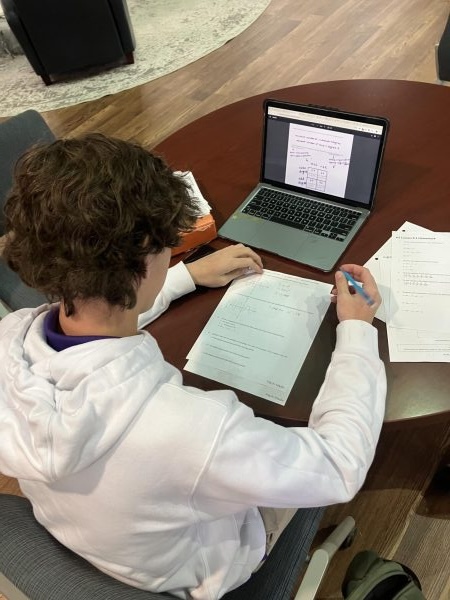Advanced Placement (AP) classes present students with an opportunity to challenge themselves and gain an edge in their educational journey. AP classes mimic college courses, making students use critical thinking, time management and in-depth subject matter. By enrolling in AP classes, students explore more material than on-level courses.
These classes have a final exam separate from the ones given by their high school at the end of the year, which is graded on a five-point scale. To pass, students must score at least a three out of five. To succeed on the exam, students must stay on top of their work.
“I go to office hours, and I talk with the teachers,” sophomore Nate Pitts said, who takes AP World History and AP Spanish Language. “Most of the time I have to go through my notes and all my classwork to make sure I stay on top of things.”
With the increased workload, students must put in more work outside of class.
“I make sure I practice Spanish at home because it is hard for me to understand the audio sometimes,” sophomore Ella Peer said. “The extra work helps me stay on top of my work, and I feel more prepared for class.”
Peer believes another benefit of taking AP classes is that colleges accept the AP credits earned through the classes. This allows students to skip some introductory classes, decreasing the cost of college because they do not need to take as many classes.
Peer takes her AP classes because she “wants to earn the AP credit so I do not have to take it in college.” However, Pitts says that it is more difficult to be successful in his AP classes because of the more difficult curriculum and content.
“The AP classes are definitely a lot more challenging than my honors classes because of the hard material that is taught,” Pitts said. “It is very difficult to stay on top of all the work that is assigned and make sure I am prepared for class everyday and keeping up with all my other classes.”

